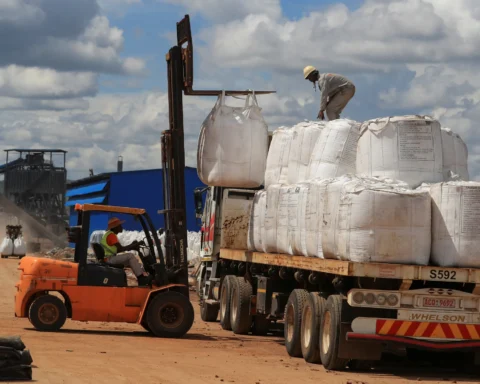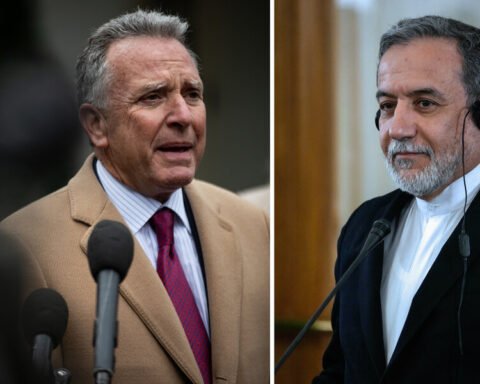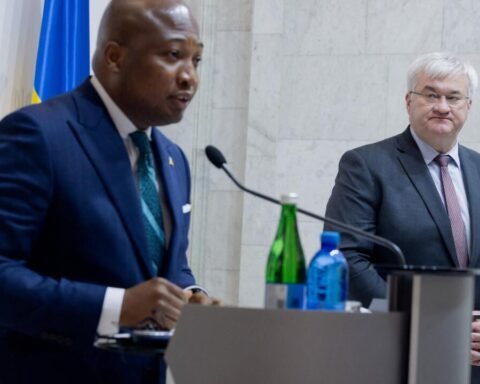Diplomatic tensions between Rwanda and Belgium have escalated over the ongoing conflict in the Democratic Republic of the Congo (DRC) and a contentious minerals deal that has caught the attention of European and global stakeholders.
The conflict in eastern DRC, fueled by the M23 rebel group, has added a new layer of complexity to the already volatile situation, with both Rwanda and Belgium accusing each other of exacerbating the crisis.
The DRC, rich in mineral resources such as cobalt, lithium, and copper, has long attracted international interest. These minerals, critical for the production of electric vehicles and green technologies, are seen as essential to the global push for a renewable energy future. Rwanda, which has increasingly gained influence in the DRC’s mineral extraction and transportation sectors, now faces accusations of fueling instability in the region, specifically due to its alleged support for the M23 rebels.
The M23, a rebel group operating primarily in the DRC’s mineral-rich eastern provinces, has seized control of key strategic territories, including the city of Goma. The group’s rise has led to thousands of casualties and the displacement of millions, worsening an already dire humanitarian crisis. Rwanda has long been accused of backing the rebels, a charge it denies, claiming its military involvement is aimed at stabilizing the region and securing transport routes for mineral exports.
Rwandan President Paul Kagame firmly rejected the allegations of his country’s involvement in the conflict. “We have no presence in DRC,” Kagame stated in a recent press conference. “Any claims that the Rwandan Defense Forces (RDF) are supporting or participating in any form of conflict in DRC are absolutely false and baseless. We remain committed to promoting peace and stability in the region.”
Belgium, which has historical ties to the DRC, has been a vocal critic of Rwanda’s role in the ongoing conflict. Belgian diplomats have accused Rwanda of destabilizing efforts and exacerbating the violence by supporting the M23 rebels. Belgium has also raised concerns about Rwanda’s increasing influence in the DRC’s mineral extraction processes, pointing to the potential links between armed groups and mining operations. The situation has come to a head, with Belgium calling for the European Union to suspend a significant minerals deal with Rwanda, citing concerns over the ongoing violence.
The controversial minerals deal, part of the EU’s Global Gateway initiative, provides Rwanda with €900 million in exchange for access to the country’s vast reserves of critical raw materials. These minerals, including cobalt and lithium, are essential for Europe’s green transition and are crucial for the production of electric vehicles, solar panels, and other renewable technologies. The agreement is seen as a way to secure a stable supply of these materials, but Belgium’s objections to the deal have centered on the fact that the minerals involved are often transported through areas controlled by armed groups, raising questions about the ethical sourcing of the resources.
Rwanda has firmly rejected Belgium’s criticisms, accusing the country of interfering in its internal affairs and misrepresenting Rwanda’s efforts to stabilize the DRC. In response to Belgium’s stance on the mineral deal and its calls for international sanctions on Rwanda, the Rwandan government expelled Belgian diplomats, accusing them of spreading misinformation and undermining Rwanda’s regional security efforts.
Belgium responded by expelling Rwandan diplomats, effectively severing diplomatic ties. The fallout from this diplomatic row has sent shockwaves through both the African Great Lakes region and European capitals, as the two nations’ historical ties are put to the test. Rwanda, a relatively small nation in terms of global influence, has asserted itself as a key player in the African mining sector, while Belgium, as an EU member state, wields considerable economic and political influence in global affairs.
Also Read; Prateek Suri Pledges Billions to
Africa’s Development
As both countries continue to stand at odds, the broader issue of mineral extraction in conflict zones looms large. The DRC’s immense mineral wealth has long been a source of exploitation and conflict, with local communities bearing the brunt of the violence and environmental damage caused by illegal and unregulated mining operations. The international community now faces mounting pressure to ensure that the extraction of these resources is done in a way that benefits local populations and does not fuel further conflict.
The confrontation between Rwanda and Belgium underscores the complexities of global mineral supply chains, especially when linked to unstable regions like the DRC. The growing demand for rare earth elements and other critical minerals, essential for Europe’s green transition, has added a new layer of urgency to the issue. As tensions continue to rise, both Rwanda and Belgium must navigate a delicate balance of geopolitical interests, ethical considerations, and regional stability.
The international community now finds itself at a crossroads, with the question of how to responsibly source minerals from conflict zones becoming ever more pressing. As Rwanda and Belgium continue their diplomatic standoff, the fate of the DRC’s resources and its people remains uncertain.







